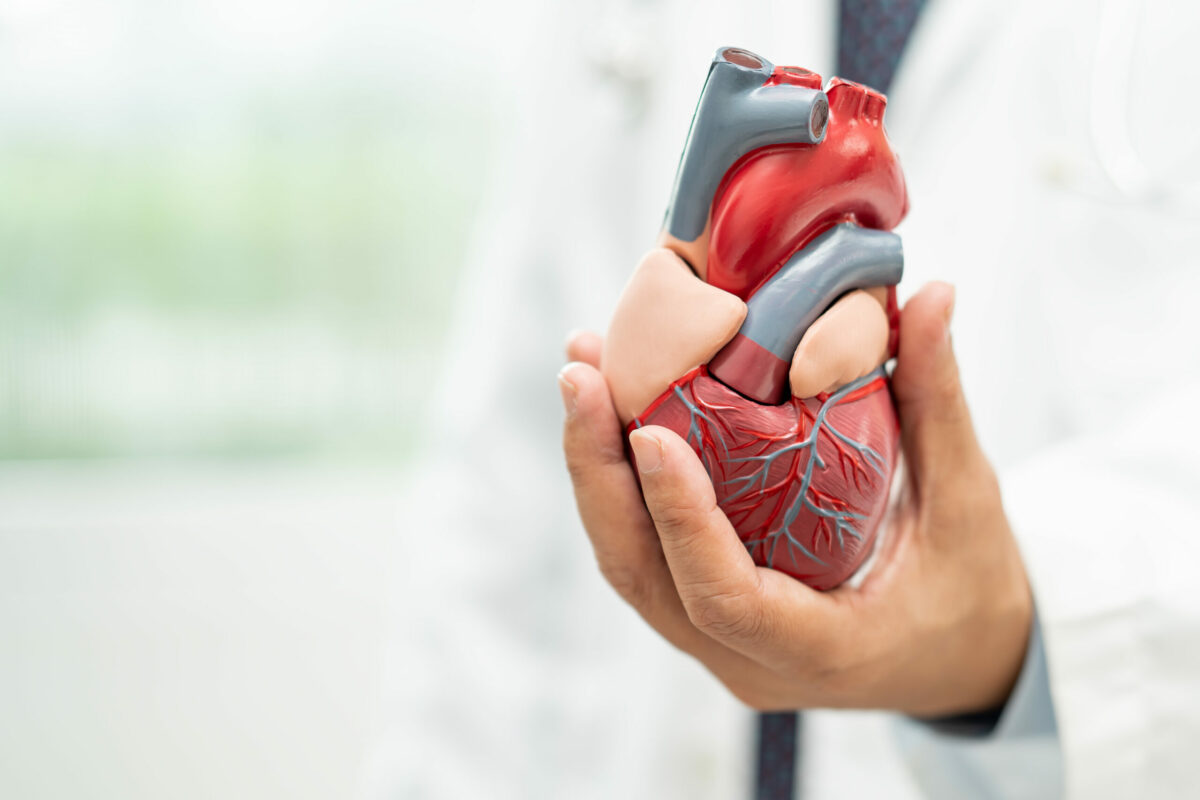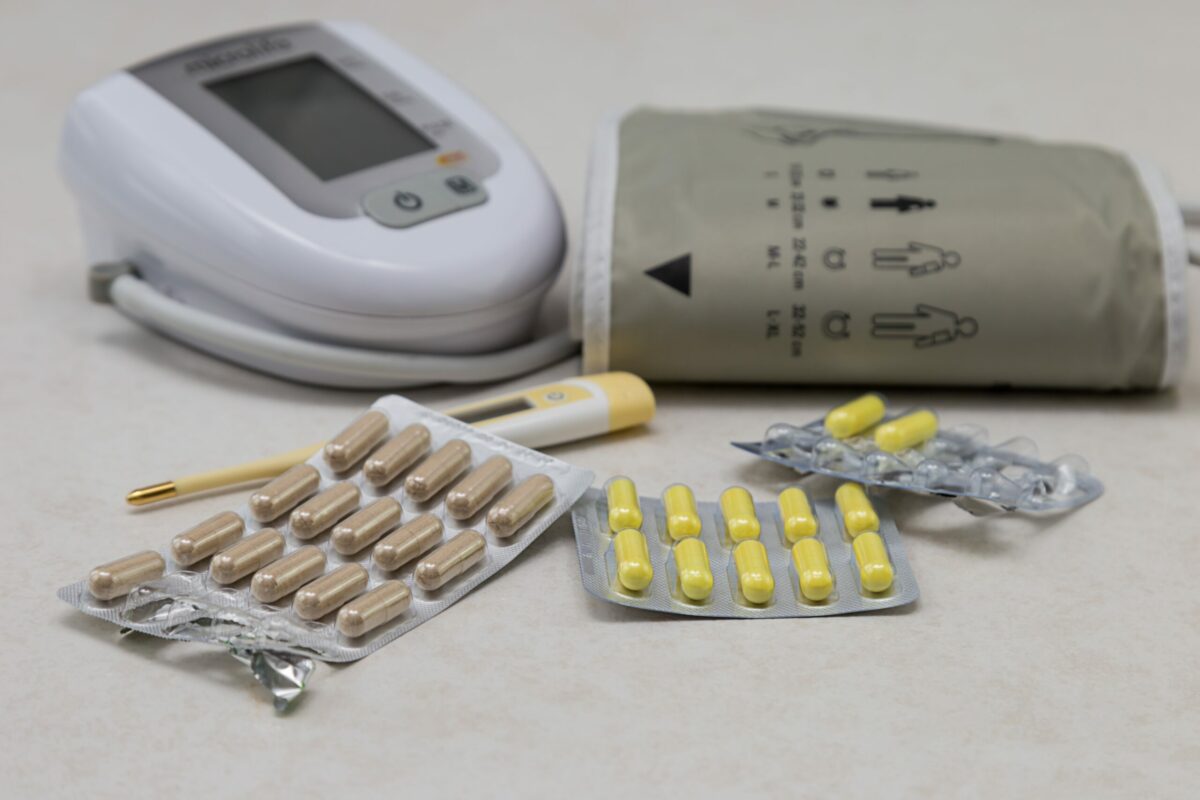An enlarged heart is also known as cardiomegaly and it indicates another health condition rather than a disease itself. The medical term cardiomegaly refers to an enlarged heart muscle that is seen on imaging tests (including chest X-ray). However, additional tests are needed to determine the exact cause of an enlarged heart.
While cardiomegaly may occur due to heart disease, sometimes it may happen due to short-term stress on the body (such as pregnancy). This health problem may occur temporarily or permanently. Healthcare providers usually treat cardiomegaly with medicines, medical procedures, or surgery.
Symptoms
While some people with cardiomegaly do not experience any symptoms, others may notice the following ones. For example:
- Arrhythmia (irregular heart rhythm)
- Swelling in the legs or abdomen (belly)
- Shortness of breath
Usually, it is easy to treat cardiomegaly if it is detected early. However, if you notice the following symptoms it may be a sign of a possible myocardial infarction and you should immediately visit a doctor. For example:
- Fainting
- Severe shortness of breath
- Discomfort in the upper body including jaw, stomach, neck, back, or arms
- Chest pain (angina)
Causes
This health problem is often caused by damage to the heart or health conditions that make the heart work harder. When it is not possible to determine the exact cause of an enlarged heart, it is called idiopathic cardiomyopathy. Check below some health conditions usually associated with cardiomegaly:
- Congenital heart defect – This is a condition present at birth and it causes problems with function and structure of the heart muscle.
- Damage from a heart attack – Certain structural heart damage and scarring may cause the heart muscle to work harder to supply the body with enough blood. Therefore, extra strain on the heart may cause swelling and even heart failure.
- Cardiomyopathy – A health condition in which the heart muscle becomes thick and rigid causing it to work harder.
- Pericardial effusion (fluid buildup in the sac around the heart) – Enlargement of the heart muscle may occur due to this condition. It usually can be seen on X-ray.
- Heart valve disease – The heart contains four valves that correctly keep blood flow. Hence, if a disease of a heart valve occurs, it may interrupt blood flow causing heart chambers to enlarge.
- Hypertension (high blood pressure) – This condition makes the heart muscle pump harder to supply the body with enough blood. Extra strain on the heart may cause it to get larger.
- Pulmonary hypertension (high blood pressure in the lung arteries) – Thickness or enlargement of the heart may occur because it works harder to move blood between the lungs and the heart.
- Anemia (decreased red blood cell count) – People with this condition have low levels of healthy red blood cells that help supply the body with oxygen. As a result, the heart should pump harder to make up for the lack of oxygen.
Other Causes
- Thyroid disorders – Hypothyroidism (underactive thyroid gland) and hyperthyroidism (overactive thyroid gland) may cause heart problems (including cardiomegaly).
- Hemochromatosis – This is a health condition in which iron begins to build up in the different body structures and organs (including the heart). Thus, it may cause the lower left chamber of the heart to swell.
- Cardiac amyloidosis – This is a rare health condition in which a protein (amyloid) collects in the blood and may get stuck in multiple body organs (including the heart). These deposits may cause thickening of the heart muscle, which leads to extra strain on the heart.
- Aerobic exercise – Some athletes may experience cardiomegaly due to frequent and prolonged exercise. However, in most cases, this cardiomegaly type does not require treatment.
- Fat around the heart muscle also may cause an enlarged heart but if there are no other health conditions, it does not need treatment. Usually, the fat around the heart muscle can be seen on a chest X-ray.
Risk Factors
Anyone may develop this health problem but there are some factors that may increase your risk of developing it. For example:
- Hypertension – People with blood pressure higher than 140/90 millimeters of mercury are more likely to develop cardiomegaly.
- Family history of cardiomyopathy – There are some cardiomyopathy types that run in families and increase your risk of developing a thick, rigid, or enlarged heart.
- Heart diseases – In such cases, approximately all heart conditions may cause an enlarged heart. These include congenital heart defects, heart valve diseases, and others. To prevent cardiomegaly it is advised to follow a healthy lifestyle and have regular checkups.
What Are The Possible Complications of Cardiomegaly?
People with cardiomegaly may experience some complications. However, it depends on the heart part is affected. These include:
- Blood clots – A blood clot may form in the heart lining and if it occurs in the right side of the heart it may go to the lungs (pulmonary embolism). Moreover, if a blood clot blocks the flow of the blood, it may lead to stroke or heart attack.
- Heart failure – This complication often occurs when the left lower chamber of the heart (left ventricle) becomes enlarged. As a result, the heart cannot pump blood properly to ensure the body with blood.
- Regurgitation (leaky heart valve) – Cardiomegaly may prevent the tricuspid and mitral valves from closing properly. Therefore, it may lead to blood flow backward. In such cases, treatment is not necessary but anyway, visit a doctor for a diagnosis.
- Cardiac arrest and sudden death – An enlarged heart may cause the cause heart muscle to beat either too fast or too slow causing arrhythmia (irregular heart rhythm). Hence, this condition may cause fainting, cardiac arrest, or sudden death.
How to Prevent an Enlarged Heart?
It is important to inform your doctor if anyone in your family has cardiomyopathy or other heart conditions that may cause cardiomegaly. Early diagnosis and proper treatment may prevent cardiomegaly from worsening.
Furthermore, you should adopt a heart-healthy diet that helps prevent or manage some health problems that cause cardiomegaly. Check below some lifestyle changes that may help prevent the condition:
- Eat a nutritious and balanced diet
- Administer prescribed medications exactly as recommended by your doctor
- Quit smoking or never start
- Limit or avoid alcoholic drinks
- Regular exercise
- Avoid illegal drugs
Diagnosis
Healthcare providers usually perform the following tests to diagnose cardiomegaly. For example:
- Blood tests – These tests are done to check levels of some substances that may cause an enlarged heart muscle and exclude other conditions that cause similar symptoms.
- Chest X-ray – This test can determine whether the heart is enlarged and check for heart and lung conditions.
- Electrocardiogram (ECG or EKG) – This is a quick and painless test that helps doctors measure the electrical activity of the heart. This test is used to check how fast the heart is beating and for signs of a thickened heart muscle.
- Echocardiogram – This test uses sound waves to make pictures of the heart’s motion, structure, and size. It helps determine how well the heart works.
- Exercise tests or stress tests – These tests usually involve walking on a treadmill or riding a stationary bike while the heart is monitored.
- CT (computerized tomography) or MRI (magnetic resonance imaging) scans – These imaging tests are often used to get detailed images of the heart and other body structures and organs.
- Cardiac catheterization – This test involves a thin and flexible tube (catheter) that is inserted into a blood vessel and then guided to the heart. This test helps doctors measure the pressure within the heart chambers.
Treatment
The treatment for cardiomegaly is usually different among people because it depends on several factors. These include the cause and severity of the enlarged heart, existing health problems, and others. Check below the most common treatment options used in people with cardiomegaly:
Medications
The following medicines are usually prescribed if an enlarged heart is caused by cardiomyopathy. Examples include:
- Diuretics (also called water pills) – These medicines are used to decrease the amount of sodium and water in the body, which helps reduce high blood pressure.
- Other hypertensive medicines – These include beta-blockers, angiotensin-converting enzyme (ACE) inhibitors, or angiotensin II receptor blockers (ARBs). These medications also reduce high blood pressure and improve heart function.
- Anticoagulants (also called blood thinners) – These medicines reduce the risk of blood clots that may cause myocardial infarction or stroke.
- Antiarrhythmics – These medicines are used to control heartbeats and prevent irregular heart rhythms.
Surgery and Other Treatments
When medications cannot treat an enlarged heart, surgery, and certain medical devices may be needed. For example:
- Pacemaker – This is a specific device that is implanted near the collarbone. From this device, either one or more electrode-tipped wires run from the pacemaker to the blood vessels and the inner of the heart. It helps maintain the heartbeat at a steady rate.
- ICD (implantable cardioverter-defibrillator) – This treatment option is often recommended when you have arrhythmia and an increased risk of sudden death. It involves an implantable device also placed near the collarbone. It continuously monitors the heart rhythm and if identifies an irregular heartbeat delivers a low- or high-energy shock to reset the heart rhythm.
- Heart valve surgery – If the enlarged heart is caused by a heart valve disease, doctors may recommend surgery to repair or replace the damaged valve.
- Coronary bypass surgery – Doctors recommend this procedure if cardiomegaly occurs due to a blockage in the coronary arteries.
- LVAD (left ventricular assist device) – This is an implantable mechanical pump that helps the heart pump blood. It is used in people with heart failure while you wait for a heart transplant.
- Heart transplant – This treatment option is often recommended for people when other treatments do not work.
Frequently Asked Questions
How serious is an enlarged heart?
It is considered a serious health problem that may cause the heart to beat too fast or slow, which leads to irregular heart rhythm (arrhythmia), fainting, cardiac arrest, or sudden death.
What drinks are good for an enlarged heart?
The following drinks may help with cardiomegaly along with water. For example:
- Sparkling water
- Unflavoured milk
- Plant-based milk with added calcium (including soy, almond, oat, rice milk, and others)
- Tea
- Coffee
- Small glass of 100% fruit or vegetable juice
For more details, discuss it with your healthcare professional.
What happens if an enlarged heart is left untreated?
People who ignore the symptoms and do not get treatment for cardiomegaly may experience serious and life-threatening complications. These include:
- Arrhythmia
- Cardiac arrest and sudden death
- Stroke
- Blood clots
- Heart valve disease
If you have additional questions, ask your healthcare provider.




